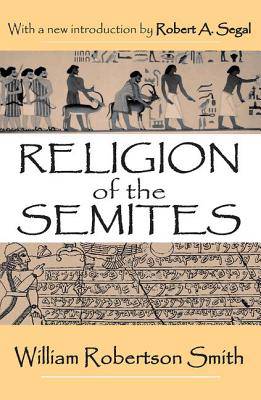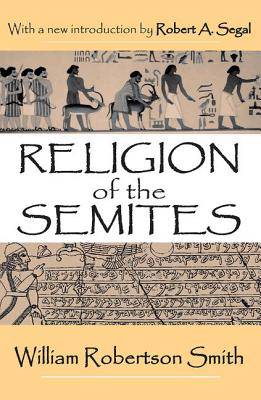
- Retrait gratuit dans votre magasin Club
- 7.000.000 titres dans notre catalogue
- Payer en toute sécurité
- Toujours un magasin près de chez vous
- Retrait gratuit dans votre magasin Club
- 7.000.0000 titres dans notre catalogue
- Payer en toute sécurité
- Toujours un magasin près de chez vous
102,45 €
+ 204 points
Format
Description
Scottish Semiticist and Arabist William Robertson Smith was a celebrated biblical critic, theorist of religion, and theorist of myth. His accomplishments were multiple. Smith's German mentors reconstructed the history of Israelite religion from the Bible itself; Smith ventured outside the Bible to Semitic religion and thereby pioneered the comparative study of religion. Where others viewed religion from the standpoint of the individual, Smith approached religion-at least ancient religion-from the standpoint of the group. He asserted that ancient religion was centrally a matter of practice, not creed, and singlehandedly created the ritualist theory of myth. Since Smith's time, the ritualist theory of myth has found adherents not only in biblical studies but in classics, anthropology, and literature as well.Smith's accomplishments are seen most fully in Religion of the Semites, adapted from a number of public lectures he gave at Aberdeen, and first published in 1889. Smith delivered three courses of lectures over three years. It is this set that is reprinted here. Only recently were the notes for the second and third courses of lectures discovered and published.Religion of the Semites combines extraordinary philological erudition with brilliant theorizing. Among the fundamental emphases of the book are the foci on sacrifice as the key ritual and non-ancient sacrifice as communion with God rather than as penance for sin. Most important is Smith's use of the comparative method: he uses cross-cultural examples from other "primitive peoples" to confirm his reconstruction from Semitic sources.Smith combines pioneering sociology and anthropology with a staunchly Christian faith. For him, Christianity is an expression of divine revelation. For Smith, only continuing revelation can account for the leap from the collective, ritualistic, and materialistic nature of ancient Semitic religion to the individualistic, creedal, and spiritualized nature of Christianity. Lectures on the Religion of the Semites manages to meld social science with theology, and remains a classic work in the social scientific study of religion.
Spécifications
Parties prenantes
- Auteur(s) :
- Editeur:
Contenu
- Nombre de pages :
- 558
- Langue:
- Anglais
Caractéristiques
- EAN:
- 9780765809360
- Date de parution :
- 31-07-02
- Format:
- Livre broché
- Format numérique:
- Trade paperback (VS)
- Dimensions :
- 162 mm x 223 mm
- Poids :
- 730 g

Les avis
Nous publions uniquement les avis qui respectent les conditions requises. Consultez nos conditions pour les avis.






